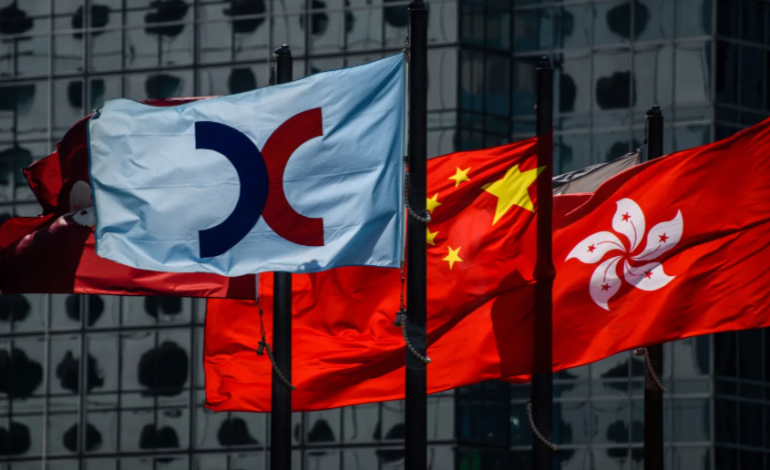Beijing’s Proactive Fiscal and Monetary Policies Boost Market Confidence.
Chinese stocks witnessed a significant rally on Monday, driven by a fresh announcement from the government promising stronger measures to bolster the country’s slowing economy. The Hang Seng Index in Hong Kong, which had been down by as much as 0.9% earlier in the day, rebounded sharply to close with a 2.8% gain. The surge was largely attributed to investor optimism following a statement from China’s Politburo outlining a shift toward “more proactive fiscal policies and moderately loose monetary policies” in 2025.
This shift in policy direction signals that China is ready to employ a broader range of financial tools to support its economy, which has been struggling with a declining property market, sluggish domestic demand, and growing trade tensions with the United States.
The Politburo, a key decision-making body led by President Xi Jinping, has pledged to “enrich and improve the policy toolbox” and “strengthen extraordinary counter-cyclical adjustments.” This marks one of the clearest indications in recent years that China is prepared to implement more aggressive economic measures to stabilize growth.
According to official reports, the government aims to shift from its long-standing “prudent” monetary stance to a “moderately loose” policy for 2025. The last time China adopted a similar approach was during the 2008 global financial crisis when it launched a large stimulus package to prevent an economic slowdown.
Key Takeaways from the Politburo’s Statement:
- Monetary Policy: A shift to a “moderately loose” stance suggests the possibility of further rate cuts and other liquidity-enhancing measures to stimulate lending and investment.
- Fiscal Policy: A “more proactive” fiscal policy points to increased government spending and higher central government borrowing. This could involve a higher budget deficit and the issuance of more government bonds.
- Boosting Consumption: Increasing domestic consumption has been identified as a top priority. Initiatives such as cash-for-clunkers programs, where consumers receive discounts for replacing old products with new ones, could be part of this strategy.
- Stabilizing the Property Market: The Politburo has pledged to stabilize the country’s struggling property sector, which has faced a prolonged downturn due to regulatory crackdowns and weak buyer demand.
- Stock Market Support: For the first time, Chinese officials explicitly mentioned plans to stabilize the stock market, with potential measures including the creation of a market stabilization fund.
Investors responded positively to the Politburo’s announcement, with major Hong Kong-listed stocks leading the charge. Shares of e-commerce giants like JD.com and Alibaba saw notable gains, contributing to the broad-based market rally.
The offshore yuan also strengthened, reflecting increased investor confidence that the Chinese economy may recover. Regional currencies, including the Australian dollar and New Zealand dollar, also saw gains, as markets viewed China’s renewed stimulus as a positive signal for global trade.
The Politburo’s announcement comes as China’s economic growth remains under pressure. Data released earlier in the day showed a slowdown in consumer price growth to 0.2% in November, down from 0.3% in October. The country’s producer prices also fell for the 26th consecutive month, underscoring the deflationary challenges facing the economy.
Despite this, China appears set to meet its 2024 GDP growth target of around 5%, thanks to a combination of prior policy measures and an anticipated year-end rebound. Policymakers are now laying the groundwork for next year, with analysts predicting even more decisive action to maintain economic momentum.
“The December meeting sent the most aggressive stimulus tone in a decade,” noted Morgan Stanley economists.
They expect further monetary easing, including a reduction in the reserve requirement ratio for banks, which would free up additional funds for lending.
The economic goals outlined by the Politburo will be further refined at the Central Economic Work Conference, a high-level gathering of China’s top leaders that is set to take place later this week. At this conference, specific targets for GDP growth, the fiscal deficit, and government borrowing will be announced.
Economists anticipate that the government will raise its fiscal deficit target from the current 3% to a higher level, which would allow for increased government investment and spending. The outcome of this conference will be crucial for shaping global market expectations for China’s economic performance in 2025.
China’s announcement of stronger economic support measures marks a notable shift in policy direction. By adopting “moderately loose” monetary policy and “more proactive” fiscal measures, Beijing is signaling a renewed urgency to stabilize growth and rebuild market confidence.
With input from Market Watch, Reuters, and Bloomberg.









